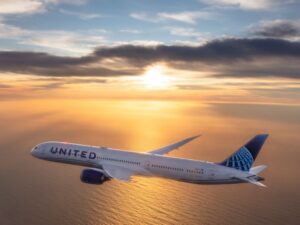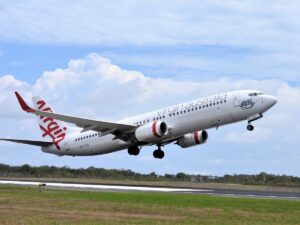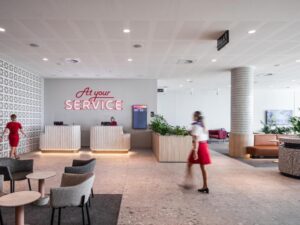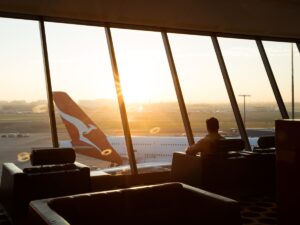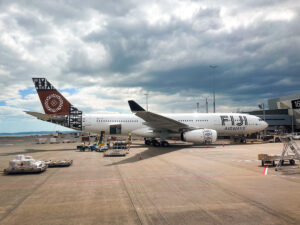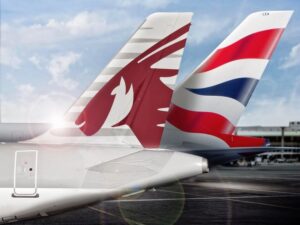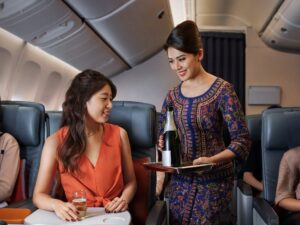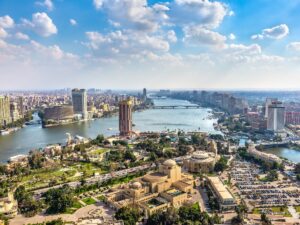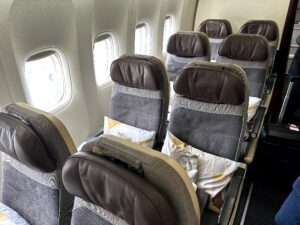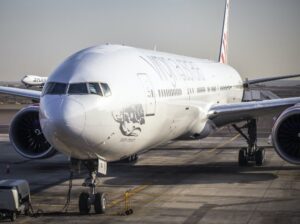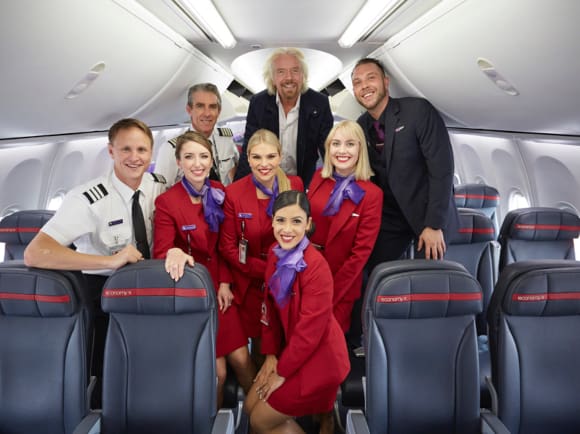 The field of potential Virgin Australia buyers has been narrowed down to two, with Cyrus Capital Partners and Bain Capital now competing to become the new owners of the collapsed airline.
The field of potential Virgin Australia buyers has been narrowed down to two, with Cyrus Capital Partners and Bain Capital now competing to become the new owners of the collapsed airline.
The final bids for Virgin Australia, which has been in voluntary administration since 21 April, are due on Friday 12 June 2020. The administrators from Deloitte intend to then select a bidder and have a binding agreement in place by the end of June. The sale is expected to then be finalised in a meeting of creditors around mid-August.
The decision on the final two bidders was announced on Tuesday, after five non-binding offers were received at the end of last week. Other bidders that had got past the first round of offers a fortnight ago included BGH Capital and Indigo Partners, which has stakes in low-cost airlines include Wizz Air, Frontier and JetSmart and Volaris.
“Both Bain Capital and Cyrus Capital Partners are well-funded, have deep aviation experience, and they see the real value of the business and its future,” Deloitte’s Vaughan Strawbridge said.
So, what are the final two bidders’ plans for a relaunched Virgin Australia? Here’s what we know so far about the potential Virgin Australia buyers…
Cyrus Capital Partners
Cyrus Capital Partners is a US-based investment fund which manages over $6 billion worth of assets around the world. The firm has links to Virgin’s founder Richard Branson, having previously invested in Virgin America and the UK regional airline Flybe, as part of a consortium that also included Virgin Atlantic. Flybe was due to be rebranded as Virgin Connect but collapsed in March 2020, becoming the first of many airline casualties of COVID-19.
Cyrus has signalled that it intends to retain Virgin Australia as a full-service airline that competes with Qantas. If this happens, Virgin will likely retain its network of lounges and Business class cabins.
According to a Sydney Morning Herald report, Cyrus would retain most of Virgin’s domestic routes using the airline’s existing Boeing 737 fleet. But some marginal regional routes could be axed alongside unprofitable international routes. Virgin’s smaller Airbus A320, Fokker 100 and ATR72 fleets would be cut, and the A330s and Boeing 777s could be replaced with Boeing 787s in the next five years, as international demand recovers.
Bain Capital
Based in Boston, Bain Capital is another US private investment firm, managing over $160 billion in assets. It is currently being advised by former Jetstar CEO Jayne Hrdlicka, who could take over Paul Scurrah as Virgin Australia’s CEO if Bain is successful.
Bain’s plan is to turn Virgin Australia into a “hybrid” domestic airline positioned between Qantas and Jetstar. Hybrid airlines aim to compete for the middle of the market, competing for both high-end corporate and budget leisure travellers simultaneously.
In theory, hybrid models offer airlines the best of both worlds – a low cost base with the potential to attract high-yielding passengers. Some hybrid airlines have been able to do this successfully, such as Canada’s WestJet. A Qantas Frequent Flyer partner, WestJet is a low-cost airline with a domestic “premium economy” product akin to European business class and a reputation for great customer service that has won over some corporate customers from Canada’s legacy carrier, Air Canada.
But other airlines that have attempted hybrid models, such as Airberlin, have collapsed after failing to win over any segment of the market. By trying to please everybody, businesses risk pleasing nobody. So it’s a risky strategy.
Virgin Blue, before it was rebranded as Virgin Australia, was arguably in the “hybrid” category as well. Bain Capital says that it wants to bring back the best parts of the Virgin Blue model, restoring the “fun” in flying.
No guarantees
While things are looking promising, there is still no guarantee that a sale will be finalised by August. There have been reports that Virgin could run out of money by the end of June, placing it into liquidation before the restructuring can be completed. So far, the federal government has been unprepared to commit additional interim funding to avoid such an outcome.
Neither of the US investment firms have indicated that they would retain the Tigerair brand, which looks increasingly unlikely to make a comeback. All Tigerair flights have been grounded since March.
There are also concerns that significant numbers of staff could be made redundant, or lose entitlements owed to them, in the restructuring process. Around 9,000 Virgin Australia employees are owed $451 million, along with other Virgin creditors owed a combined $6.8 billion. But with COVID-19 affecting airlines globally – most of which have already shed significant numbers of staff – and demand for air travel likely to return slowly, some redundancies are inevitable.
Join the discussion on the Australian Frequent Flyer forum: Virgin Australia Financially Secure? [Now in Voluntary Administration]
